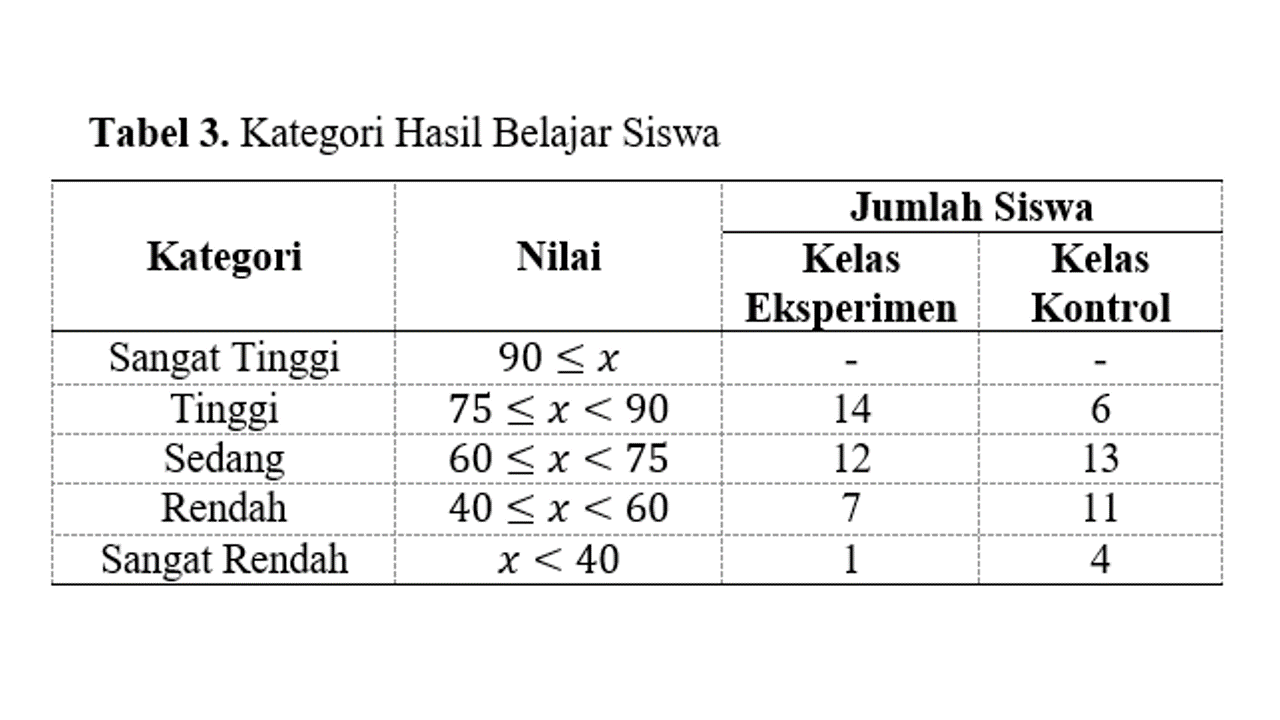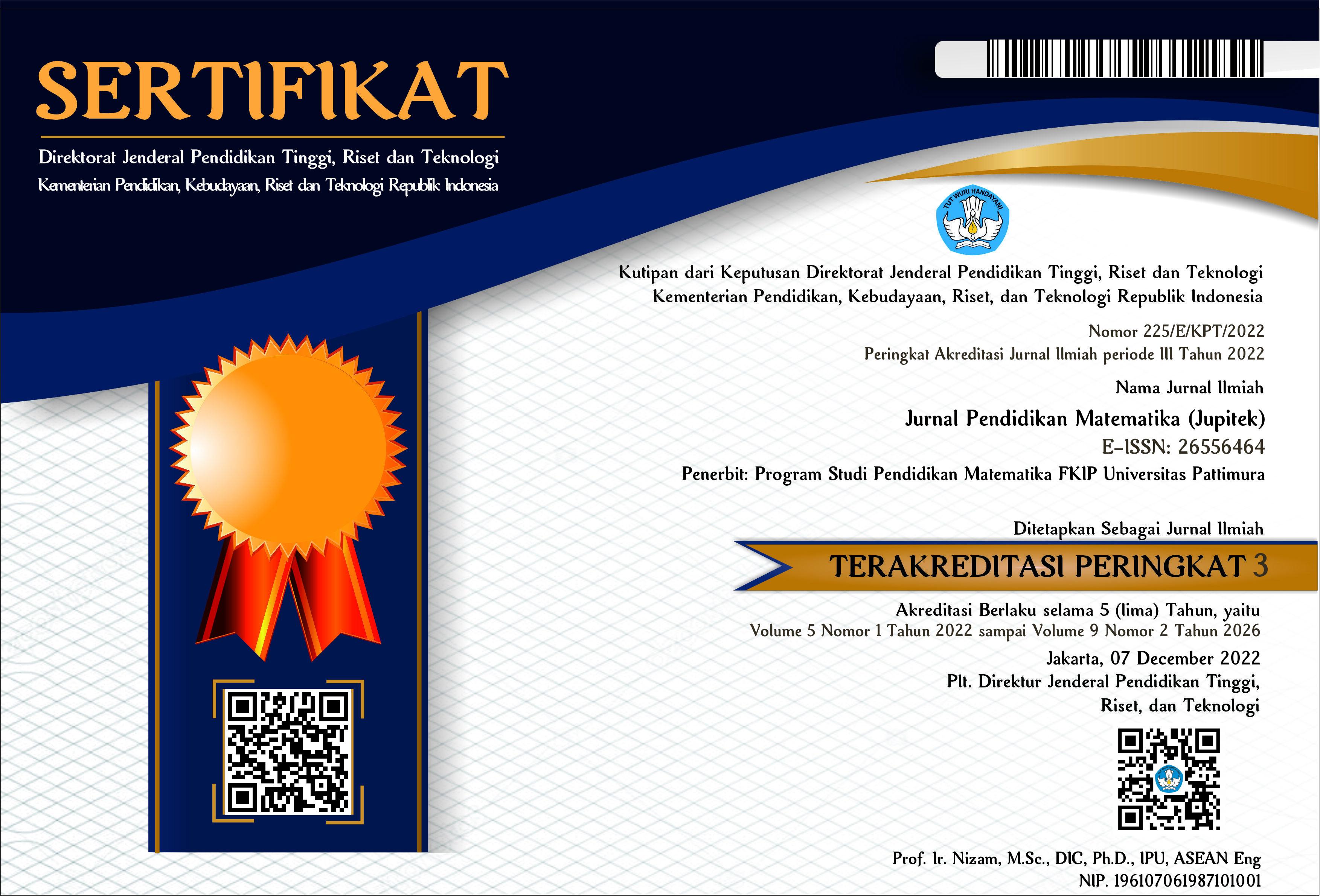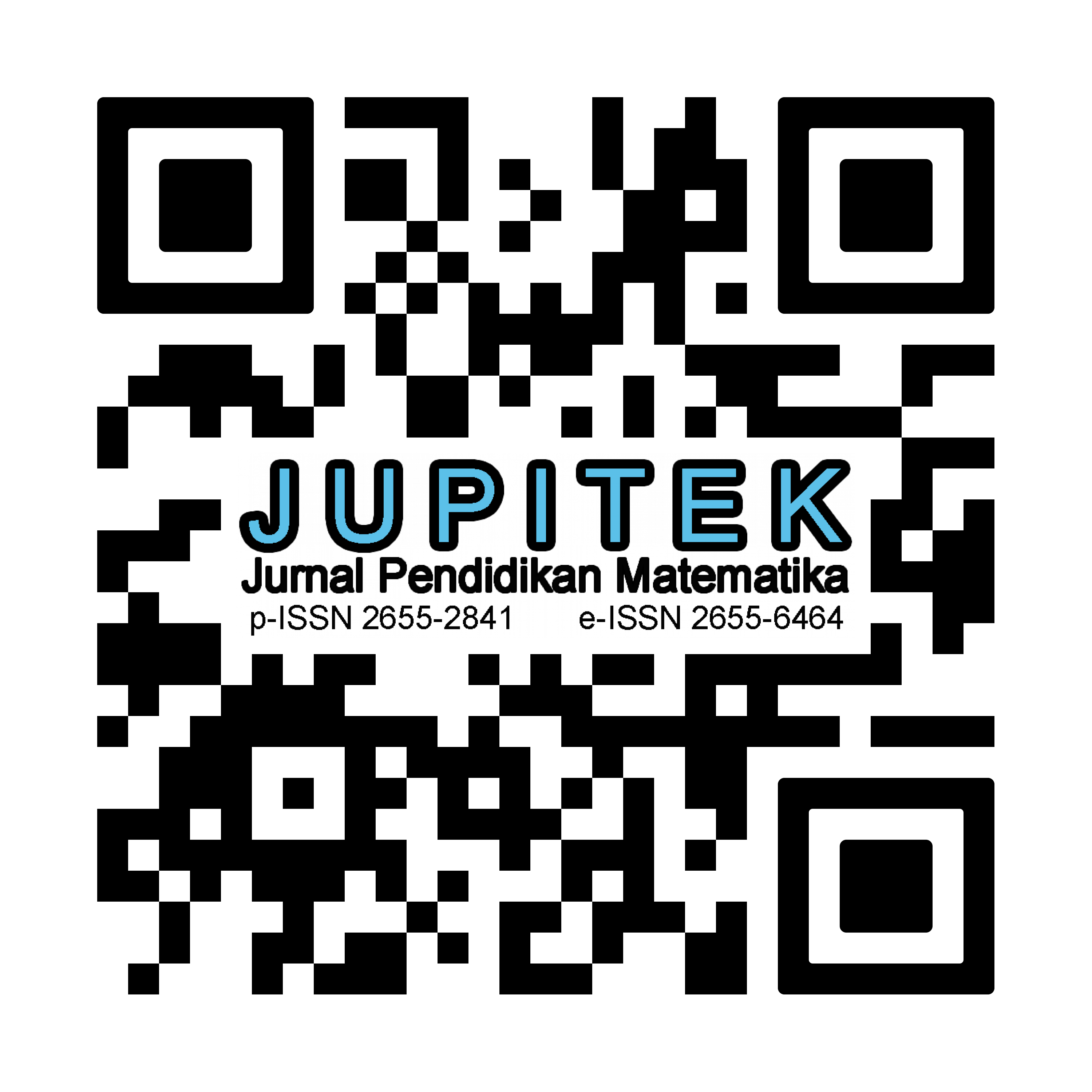THE DIFFERENCE OF STUDENT LEARNING OUTCOMES TAUGHT BY GEOGEBRA SOFTWARE ASSISSTED DISCOVERY LEARNING MODEL AND PROBLEM SOLVING LEARNING MODEL ON TRANSFORMATION GEOMETRY
Abstract
This research was conducted with the aim of knowing: (1) student learning outcomes using discovery learning learning models assisted by geogebra software; (2) student learning outcomes taught using problem solving learning models; (3) whether there are differences in student learning outcomes who are taught using discovery learning learning models assisted by geogebra software and problem solving learning models on geometry transformation material in class XI MIA SMA Negeri 5 Ambon. The type of this research is experimental research, using the posttest only control group design. The population in this study were all students of class XI MIA SMA Negeri 5 Ambon with a total of 170 students and the sample in this study was selected using purposive sampling, namely class XI MIA4 with a total of 34 students and class XI MIA5 with a total of 34 students, so the number of samples in this study namely 68 students. The instrument used in this study is a test instrument consisting of description questions for the final test. In this study, statistical analysis was used, namely t-test and the final results of the study were: (1) there were differences in student learning outcomes who were taught using discovery learning learning models assisted by geogebra software and problem solving learning models on geometry transformation material. This is shown in the results of the t-test calculation, namely the value of Sig. (2-tailed) = 0.017 < value of =0.05, thus causing H0 to be rejected and H1 to be accepted. rejected
Downloads
References
Annajmi. 2016. Peningkatan Kemampuan Representasi Matematik Siswa SMP Melalui Metode Penemuan Terbimbing Berbantuan Software Geogebra Di SMP N 25 Pekanbaru. Jurnal Ilmiah Edu Research. Vol. 5. No. 2, Hal. 67-74
Febriyanti, A., dkk. 2020. Penerapan Model Problem Solving Untuk Meningkatkan Kemampuan Pemecahan Masalah Matematika Siswa Kelas VII. Jurnal Pendidikan Matematika Undiksha. Vol. 11. No. 1. Hal. 50-56
Gazali, R. Y. 2016. Pembelajaran Matematika Yang Bermakna. Jurnal Pendidikan Matematika. Vol. 2. No. 3, Hal. 181-190
Hodiyanto, H.2017. Pengaruh Model Pembelajaran Problem Solving Terhadap Kemampuan Komunikasi Matematis Ditinjau dari Gender. Jurnal Riset Pendidikan Matematika.Vol. 4. No.2. Hal.219-228
Ismail, H. F. 2017. Statistika Untuk Penelitian dan Ilmu-Ilmu Sosial. Jakarta
Kintoko, dkk. 2015. Pengembangan Media Pembelajaran Matematika Berbantuan Komputer Dengan Lectora Authoring Tools Pada Materi Bangun Ruang Sisi Datar Kelas VIII SMP/MTS. Jurnal Elektronik Pembelajaran Matematika. Vol.3. No.2. hal. 167-178
Lekitoo. J. N. 2018. Peningkatan Hasil Belajar Siswa Kelas XI SMA Negeri 4 Ambon Pada Materi Irisan Kerucut Dengan Menggunakan Model Pembelajaran Kooperatif Melalui Media Pembelajaran CAI (Computer Assisted Instruction) Berbantuan Software Geogebra. JUPITEK, Jurnal Pendidikan Matematika Unpatti. Vol. 1 No. 1, hal 44-56
Meilantifa. 2018. Penerapan Model Pembelajaran Discovery Learning Dalam Pembelajaran Matematika Pokok Bahasan Lingkaran. Jurnal Ilmiah : SOULMATH. Vol. 6. No. 2, Hal. 59-64
Miatun, A., dkk. 2015. Eksperimentasi Model Pembelajaran Discovery Learning, Problem Solving, Dan Think Pair Share (Tps) Pada Materi Bangun Ruang Sisi Datar Ditinjau Dari Self Regulated Learning. Jurnal Elektronik Pembelajaran Matematika. Vol.3. No.7. hal. 717-728
Mone, F.& Abi, A. M. 2017. Model Discovery Learning Berbantuan Geogebra Untuk Meningkatkan Kemampuan Pemecahan Masalah. Jurnal Penelitian Pendidikan. Vol. 20. No. 2, Hal. 120-133
Noviafitri, S., dkk. 2016. Pengembangan Lembar Kerja Siswa Berbasis Model Discovery Learning Pada Pokok Bahasan Sudut Kelas VII. Jurnal Elemen. Vol. 2. No. 2. Hal. 179 – 192
Nurmita F., dkk. 2019. Penemuan Terbimbing Menggunakan Software Geogebra Dalam Pembelajaran Matematika. de Fermat : Jurnal Pendidikan Matematika. Vol. 2. No. 1. Hal. 39-45
Pangestuti, W., C. 2019. Penerapan Model Discovery Based Learning (DBL) Berbantuan Geogebra Untuk Meningkatkan Hasil Belajar Siswa Kelas IX B SMP Negeri 4 Yogyakarta Materi Transformasi Semester 1 Tahun Pelajaran 2018/2019. Jurnal Edukasi Matematika. Vol. 10. No. 1. Hal. 1059-1071
Pristiwanto.2016. Penerapan Metode Pemecahan Masalah (Problem Solving) Untuk Meningkatkan Pemahaman Siswa Tentang Komponen Peta. Wahana Pedagogika.Vol. 2.No.2.Hal.127-134
Purwanti, R. D., Pratiwi, D. D.,& Rinaldi, A. 2016. Pengaruh Pembelajaran Geogebra Terhadap Pemahaman Konsep Matematis Ditinjau Dari Gaya Kognitif. Jurnal Pendidikan Matematika. Vol. 7. No. 1, Hal. 115-122
Rachmantika, A.R,& Wardono. 2019. Peran kemampuan berpikir kritis siswa pada pembelajaran matematika dengan pemecahan masalah. Jurnal Unnes. Hal.439-443
Ratumanan, T. G., & Laurens, T. 2015. Penilaian Hasil Belajar Pada Tingkat Satuan Pendidikan Edisi Ke 3. Yogyakarta: Pensil Komunika.
Sugiyono. 2013. Metode Penelitian Kualitatif, Kuantitaif, Dan R&D. Bandung: Alfabeta.
Suruh, M.,& Oktavia, S. T. 2019. Pengaruh Model Pembelajaran Discovery Learning Terhadap Pemahaman Konsep Matematika. Jurnal Pendidikan Edutama. Vol. 6. No. 1, Hal. 11-19
Wulandari, K. N. & Raditya, A. 2017. Pengembangan Lembar Kerja Siswa Pada Materi Geometri Transformasi Menggunakan Geogebra. Prima : Jurnal Pendidikan Matematika. Vol. 1. No. 1. Hal. 83-90.

Copyright (c) 2021 Sisilia Marselina Taihuttu, La Moma, Magy Gaspersz

This work is licensed under a Creative Commons Attribution-NonCommercial-ShareAlike 4.0 International License.
License and Copyright Agreement
By submitting a manuscript to Jurnal Pendidikan Matematika (JUPITEK), the author(s) certify and agree to the following terms:
- Originality and Authority: The submitting author is authorized by all co-authors to enter into this agreement. The manuscript describes original work that has not been published previously in a peer-reviewed journal, nor is it under consideration for publication elsewhere.
- Approval: Its publication has been approved by all author(s) and by the responsible authorities of the institutions where the work was carried out.
- Rights: The authors secure the right to reproduce any material that has already been published or copyrighted elsewhere.
- Licensing and Copyright: Authors retain the copyright to their work.
- License Grant: The authors grant Jurnal Pendidikan Matematika (JUPITEK) the right of first publication, with the work simultaneously licensed under the Creative Commons Attribution-NonCommercial-ShareAlike 4.0 International (CC BY-NC-SA 4.0).
- Self-Archiving: Authors are permitted and encouraged to deposit the published version of their article in institutional repositories, on their personal websites, and other academic platforms, with proper acknowledgment of its initial publication in Jurnal Pendidikan Matematika (JUPITEK).





.png)


